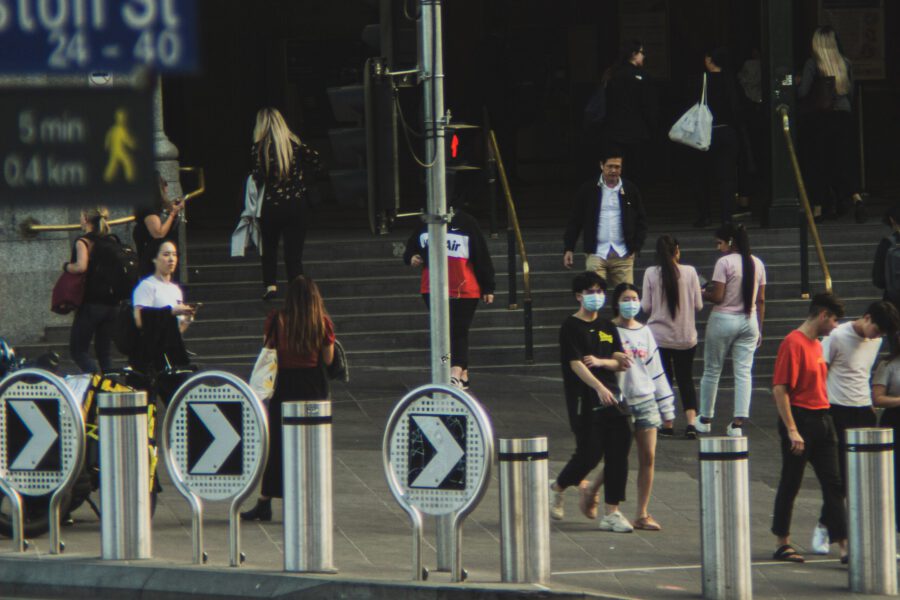New visa changes for international students and their implications

By Reyvi Marinas:
On 20 July 2020, the Australian government made a number of changes to the student visa regime in response to international students who had been affected by the current COVID-19 crisis.
There are five visa changes that ensure international students are not disadvantaged by the pandemic. They provide flexible measures for students already in Australia and for those who have not been able to travel to Australia because of border closures.
What are the visa changes?
The five visa changes include:
- Recommencement of the granting of all student visas lodged outside Australia. This would mean that when borders re-open, students who have been granted visas can travel and enter Australia.
- International students can lodge an application to extend their student visa free of charge if they are unable to complete their studies within their original visa validity as a result of the COVID-19 crisis.
• Current student visa holders studying online outside Australia due to COVID-19 are able to use their online study to count towards the Australian study requirements for a post-study work visa. • Graduates who held a student visa would be eligible to apply for a post-study work visa outside Australia if they are unable to return to Australia because of the border closures. - Additional time would be given for applicants to provide English language results where COVID-19 has disrupted access to these services.
What do these changes mean for international students?
These changes mean that international students can avail these concessions for the following reasons:
- The government can resume finalising student visa offshore applications, and students can enter Australia once the restrictions have been lifted.
- It would save students money when they apply for an extension of their visa in Australia.
- It would help students outside Australia to meet the post-study work visa requirement even if they are not in Australia when they apply for it.
- It would give students ample time to provide their English test results to Immigration when they apply for a visa.
What do these changes mean for the Australian government and the economy?
In his media release, the Acting Minister for Immigration, Citizenship, Migrant Services and Multicultural Affairs, Alan Tudge, stated that “these measures backed the international education sector… and will assist its recovery.”
He added: “Doing so will not only support the education sector, it will also have flow-on effects for many local communities and businesses, including accommodation services, tourism, hospitality and retail.”
The Minister for Education, Dan Tehan, further explained that the government has introduced these changes to “give international students confidence in their visa arrangements so they can make plans to study in Australia when it is safe to do so.”
The university sector has welcomed these changes but warned that “many new students would be adversely affected by COVID-19, and they should be treated the same as continuing students.”
Recently, Australian universities have been severely affected by the pandemic, facing a massive deficit of $16bn revenue loss by 2023 due to the huge drop in international student enrolments.
This has been compounded by a warning from the Chinese government to “reconsider going to Australia” as a result of racism and discrimination targeting people of Asian descent.
International students and their vulnerability
Needless to say, many international students have been facing widescale deprivation and exploitation since the start of the pandemic.
Although temporary emergency relief has been provided to international students by state governments, universities and non-governmental groups, they are still ineligible for federal wage subsidies like JobKeeper or JobSeeker program. Many are left with no income to meet their everyday living expenses.
In recent months, we have seen international students lining-up to food banks as casual work dries up due to the lockdown. Many of these students support themselves through casual jobs in retail and hospitality sectors.
A recent survey by Unions NSW has revealed that 60 per cent of international students have lost their jobs since March and close to half (46 per cent) are skipping meals on a regular basis to save money.
In a separate study conducted by the University of New South Wales (UNSW) and University of Technology Sydney (UTS), researchers found that international students are being subjected to high levels of wage theft. International students are “some of this country’s most exploited workers and the COVID-19 recession could make it worse”.
The report has further shown that almost two thirds of students do not seek information or assistance when they face problems at work.
As Associate Professor Laurie Berg of UTS explained: “They often suffer in silence because of visa concerns or fear of job loss. Our findings confirm many who complained were in fact sacked.”
Rights and welfare must be protected
It appears that these new visa measures provide a generous attempt to ease the difficulties and challenges faced by international students inside and outside Australia. However, these temporary measures are not enough. As shown above, underlying problems persist when it comes to international students’ rights at work, their welfare and basic needs.
Australia can do more by protecting their rights and their security. One practical way is by including them in the government’s JobKeeper or JobSeeker assistance. The government cannot treat international students and their labour as a mere commodity that can easily be expended as it pleases.
International students have contributed enormously in this country, and it is high time that their rights and welfare should also be protected during this crisis.
Leave a Reply